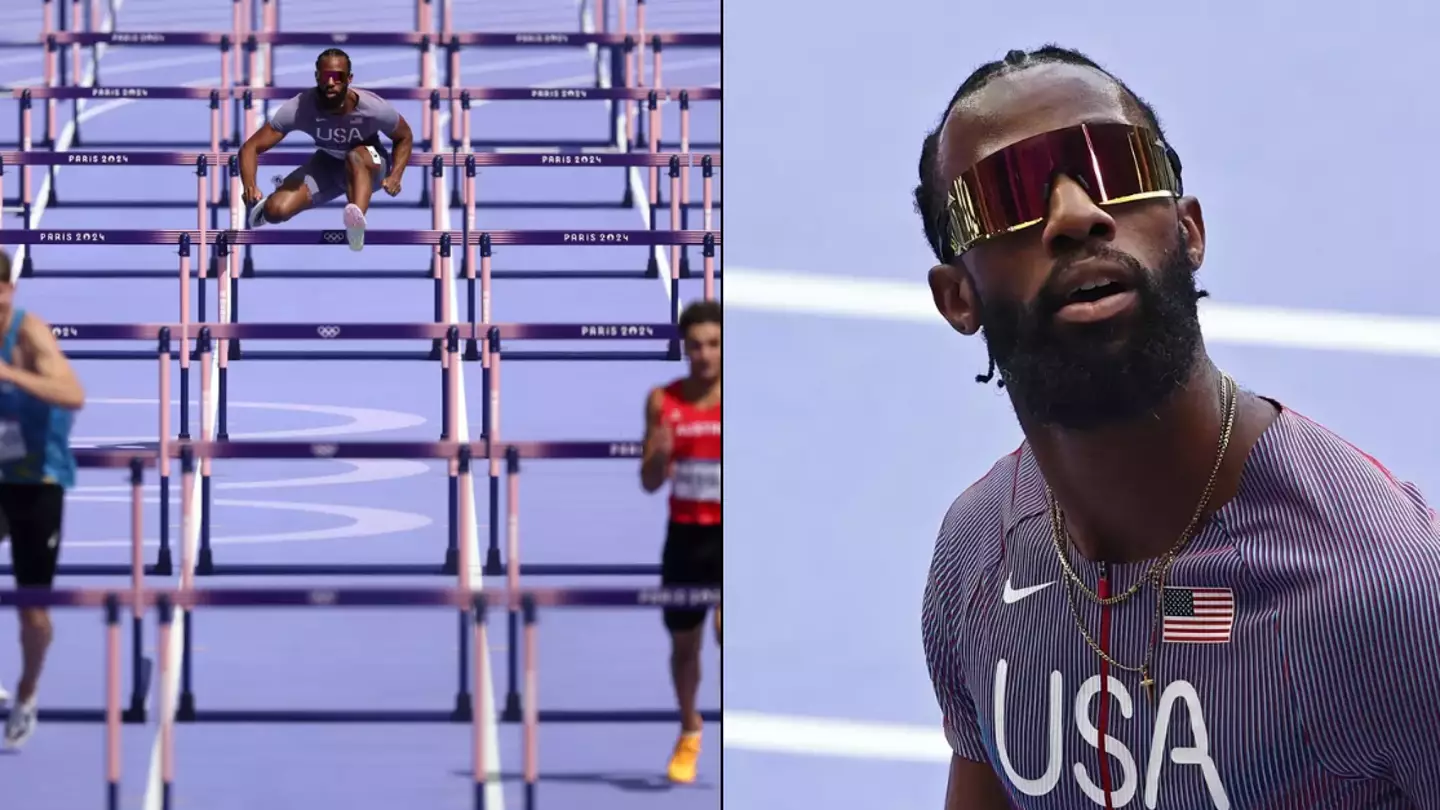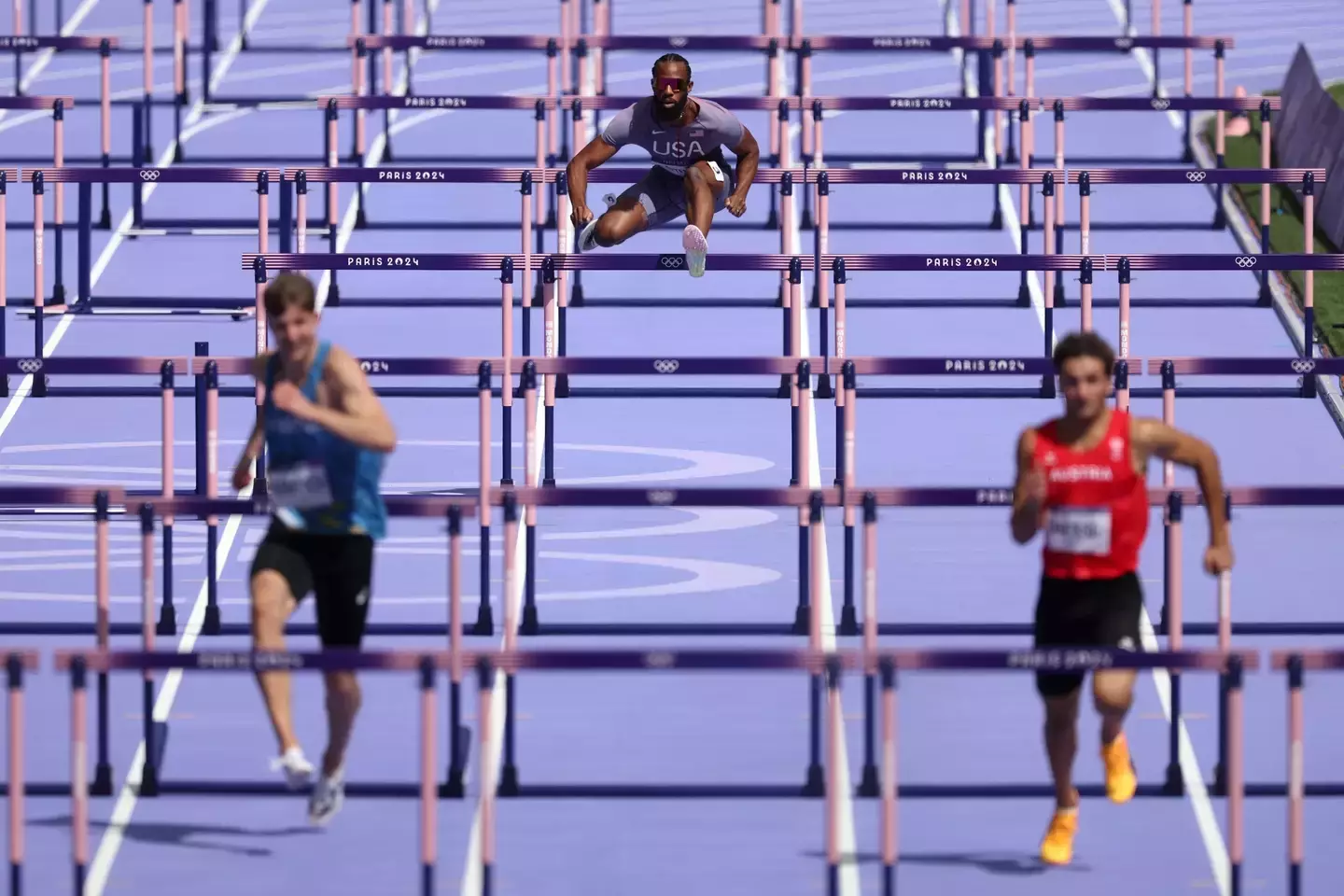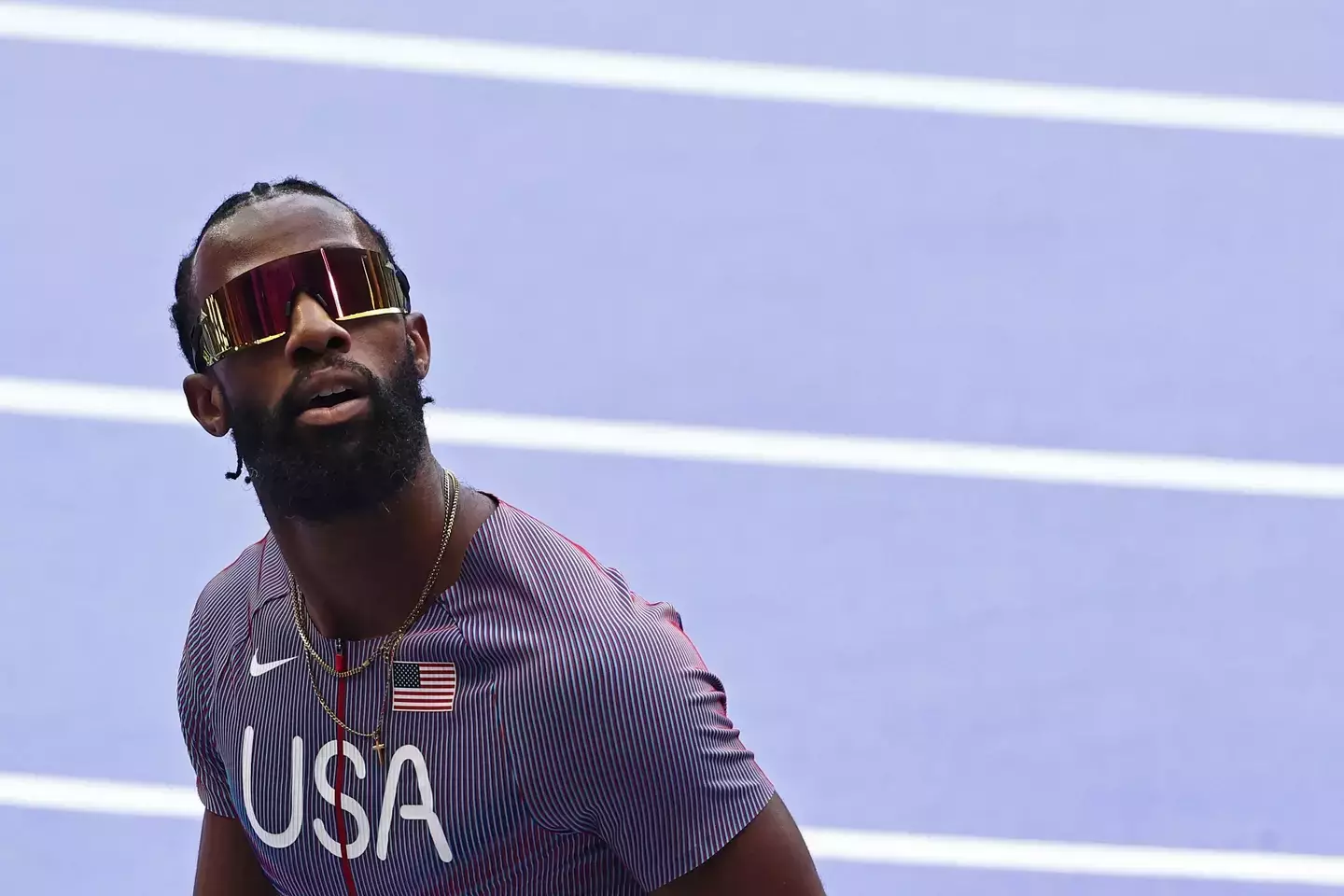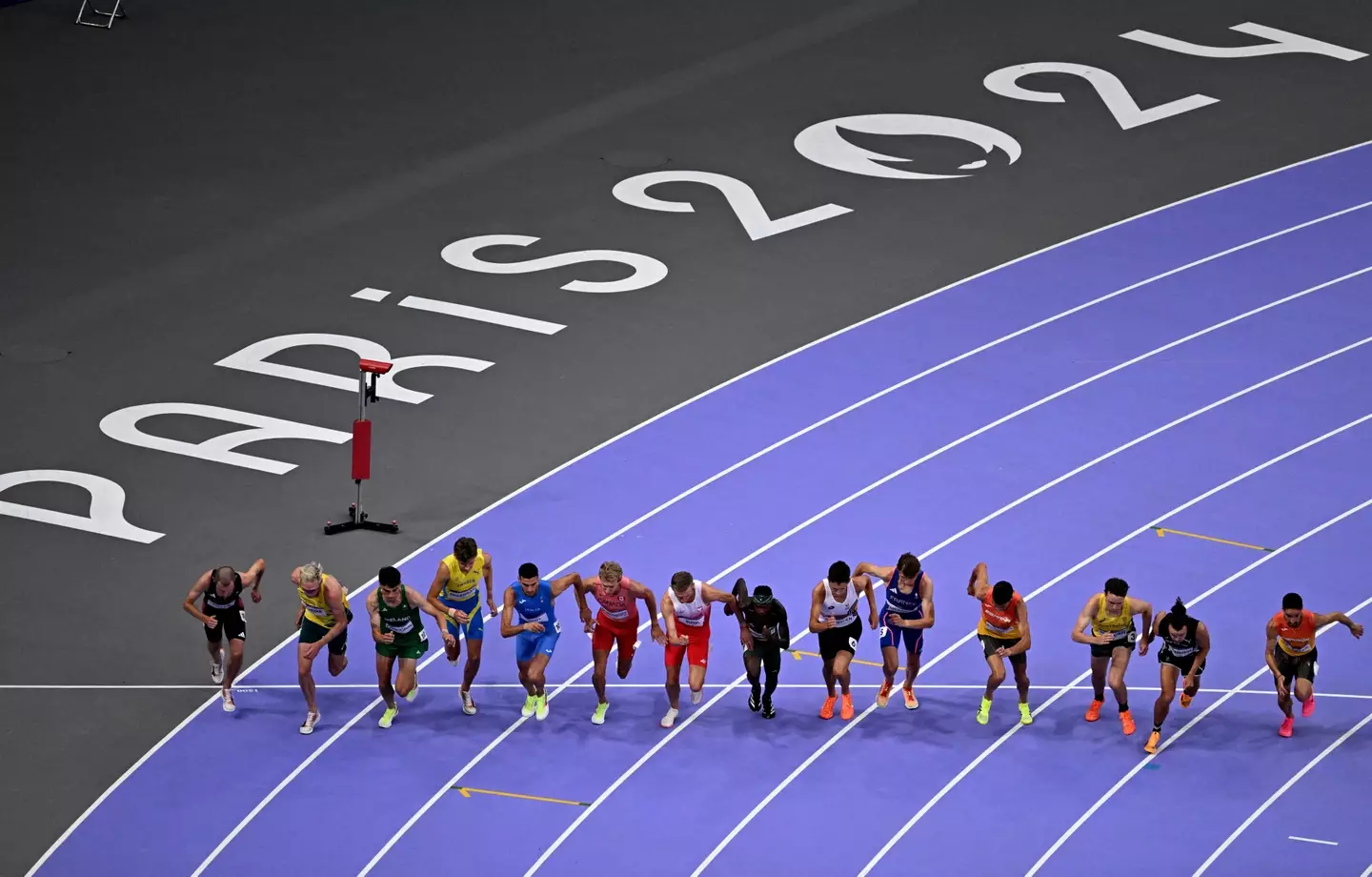
Freddie Crittenden might have lost the battle, but he could still win the war.
The Team USA star, 30, purposely put on a leisurely performance in his first heat of the Men's 110m hurdles on Sunday (4 August) and ended up being the last one to make it across the finish line with a time of 18.27 seconds.
Despite bagging a personal best of just 12.93 seconds in his country's trials to secure his spot in this year's Olympics, he bizarrely trailed more than five seconds behind fellow American athlete Grant Holloway, who came first in the race.
However, Crittenden still has just as much of a shot at bringing home gold for the US as the winner of the heat does.
Advert

The hurdler revealed that he had jogged through the race 'intentionally' because he wanted to avoid aggravating a sore muscle in his leg and knew that he'd have another chance at glory this coming week.
He told NBC: "Everyone gets through to the repechage... So I decided to just, not make an emotional choice, make a smart choice, give my body time to recover a little bit from being aggravated, lean on my medical doctors, lean on God, and just wait for the repechage round, come out here and try to kill it in the repechage round."
It's thanks to the introduction of these repechage rounds that Crittenden has another chance to redeem himself.
What is a repechage?
The repechange rounds - which loosely translates to 'second chance' in French - are the only hope which athletes who failed to impress in their first heat at the Olympics have to pull it back.
They give sports stars another opportunity to earn a medal when they would have previously been knocked out of the competition in the early stages, so it's a rule which will benefit the underdogs.
Now, it's no big deal if they don't qualify the traditional way - AKA putting their all in and earning a top spot in the rankings.
In Crittenden's case, he will be able to face the 110m hurdles again on Tuesday (6 August).
Speaking to reporters after his deliberate defeat, he said: "If there wasn't a repechage round, I probably would've just balls to the wall, run as hard as I could, crashed and burned, whatever happens."

What does it mean for the Olympic games?
The Paris Games is the first Olympics to have repechage rounds, as the move comes after World Athletics (WA) - which is the sport's governing body - introduced these in some events in 2022.
WA President Sebastian Coe said while announcing the news: "The repechage rounds will give more exposure to our sport during the peak Olympic period and will be carefully scheduled to ensure that every event on our Olympic programme retains its share of the spotlight."
As a result of the repechage rounds being brought in, it means that every athlete will run in at least two races.
Previously, there were three stages of the competition for athletes to make their way through - the heats, semi-finals and the final, but now there is a fourth round which is a last chance saloon for those who flopped.
Although it is a good thing for those who put in a poor performance to make use of, it will put further mental and physical strain on competitors.
Which events include a repechage round?

The repechage rounds have been brought in for a number of events at this year's Olympics.
According to the sporting event's website, they will take place after 'all individual track events from 200m to 1500m in distance, including the hurdles events'.
The 100m already has preliminary heats before the first round, so it does not apply to this race, while distance events also aren't included due to athletes needing longer recovery time between rounds.
Sports including athletics, rowing, kayaking and judo have repechage rounds.
At Paris 2024, the track events which have these second chance races for athletes are as follows:
- 200m (M,W)
- 400m (M,W)
- 800m (M,W)
- 1500m (M,W)
- 100mH (W)
- 110mH (M)
- 400mH (M,W)
WA President Coe said: "After consulting with our athletes and broadcasters, we believe this is an innovation which will make progression in these events more straightforward for athletes and will build anticipation for fans and broadcasters. "The repechage rounds will give more exposure to our sport during the peak Olympic period and will be carefully scheduled to ensure that every event on our Olympic programme retains its share of the spotlight."
The full remaining schedule for the repechage round is as follows:
Monday
- Morning session: Women’s 200m repechage
- Morning session: Women’s 400m hurdles repechage
- Morning session: Men’s 400m repechage
Tuesday
- Morning session: Women’s 400m repechage
- Morning session: Men’s 110m hurdles repechage
- Morning session: Men’s 400m hurdles repechage
- Morning session: Men’s 200m repechage
Wednesday
- Morning session: Women’s 1500m repechage
Thursday
- Morning session: Women’s 100m hurdles repechage
- Morning session: Men’s 800m repechage